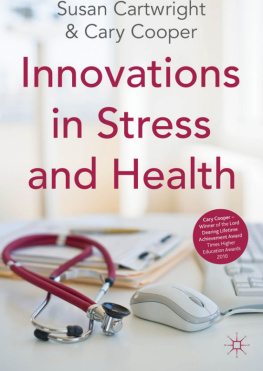2021 Nick Arnett
All rights reserved. No portion of this book may be reproduced, stored in a retrieval system, or transmitted in any form or by any meanselectronic, mechanical, photocopy, recording, scanning, or otherexcept for brief quotations in critical reviews or articles, without the prior written permission of the publisher.
Published by HarperCollins Leadership, an imprint of HarperCollins Focus LLC.
Any internet addresses, phone numbers, or company or product information printed in this book are offered as a resource and are not intended in any way to be or to imply an endorsement by HarperCollins Leadership, nor does HarperCollins Leadership vouch for the existence, content, or services of these sites, phone numbers, companies, or products beyond the life of this book.
ISBN 978-1-4002-2473-9 (eBook)
ISBN 978-1-4002-2469-2 (PBK)
Epub Edition May 2021 9781400224739
Library of Congress Control Number: 2021937287
Printed in the United States of America
21 22 23 24 25 LSC 10 9 8 7 6 5 4 3 2 1
Information about External Hyperlinks in this ebook
Please note that the endnotes in this ebook may contain hyperlinks to external websites as part of bibliographic citations. These hyperlinks have not been activated by the publisher, who cannot verify the accuracy of these links beyond the date of publication
This book is dedicated to all of those who give their lives for others, figuratively or literally. Those who servepaid or volunteer, private or public, religious or secularto keep our society functioning.
I especially remember friends and family that we lost too soon: my brother John, who lost his life to bile duct cancer on December 28, 2020, my sister Susie, who lost her fight with ovarian cancer on May 9, 2020; my sister Lesley, who died in the H1N1 pandemic of 200910; John Heidish of Penn Hills Fire; Wesley Canning of the United States Marine Corps; and Jimmy McCluskey of Santa Clara County Fire.
contents
Guide
When a coach or physical therapist urges you to work hard, thats because physical stress can become strength. Instead of I should get more exercise despite the stress, choose The stress of exercise will make me stronger.
When author Bren Brown describes the benefits of vulnerability and transparency, thats because social stress can become strength. Instead of I should show up and be more real with others despite the stress, choose The stress of showing up and being real will make me stronger.
When the Bible or other holy writing says, Adversity builds character, thats because spiritual stress can become strength. Instead of I should take on new challenges despite the stress, choose The stress of adversity will make me stronger.
E very two to three days, I escape the suburbia of Silicon Valley for a trail, strap a heavy pack on my back, set my phone to track my progress, and hike three or four miles, occasionally more. I hike fast. On a flat trail, it takes me about forty-two minutes to cover three miles. That speed is significant because to qualify for wildland fire assignments, one of my part-time jobs, each spring I have to pass the pack testthree miles in forty-five minutes or less, carrying forty-five pounds. It is on level ground, but no running is allowed.
For a guy who is eligible for Social Security, those workouts are stressful. My heart rate reaches about 160 beats per minute, I sweat a lot, sometimes I feel nauseated, and frequently Id like to just quit.
When I hit the trail with that heavy pack, my automatic stress response activates. My body releases stress hormones, giving me energy, focus, and stamina. Youve probably heard the stress reaction called fight or flight, a name that certainly describes what Im doing. Physical stress turns into physical strength, endurance, and resilience when we do it at the right intervals and also activate our physical renewal response. This was dubbed rest and digest by the same scientist who coined fight or flight. Resting and digesting heals the damage done by physical stress and triggers growth.
The right kinds and amounts of fight or flight and rest and digest, at the right intervals, make us physically stronger and more resilient. Thanks to regular physical challenges, rest, and nutrition, I am now faster, stronger, and need less rest to bounce back from intense effort.
Fight or flight and rest and digest describe physical reactions and renewal, but stress is also mental and spiritual. Training for the pack test is mentally stressful: I need to stay focused. Distracting thoughts and feelings will slow me down. If I pull out my phone and start reading messages, the app that tracks my speed quickly reflects that distraction.
Sometimes I get in the zone (a flow state that Ill describe further), and it feels like Im floating down the trail. But more often the pack makes my shoulders ache and makes every step a chore. The mental stress includes acknowledging and setting aside the desire to turn away from the discomfort and occasional pain. I remind myself that fatigue is an emotion that we feel long before we are really out of energy. Although it is critical to know how hard we can push ourselves, theres no safe way to know without training.
The temptation to compare myself to others is also mentally stressful. When I work with a crew that is younger (and they pretty much all are) and Im falling behind, I remind myself that what other people think of me is none of my business.
Defend and distance is my name for our social stress response. It is mental fight or flight, the urge to explain away or avoid uncomfortable feelings, embarrassment, and judgment. On the trail, thats coming from within me, but its roots lie in my relationships with others. I learned those voices and the language to describe them from my parents, teachers, and other influential people.
Just as we recover from fight or flight by activating rest and digest, we have a social renewal activator: tend and befriend. When researchers discovered it about twenty years ago, they labeled it a stress response, but it clearly is more about renewal. Tending and befriending repairs damage done by defensive and distancing thoughts and behavior and turns social stress into strength to think more clearly, manage emotions, and bond with others.
The right kinds and amounts of defend and distance and tend and befriend, at the right intervals, make us stronger and more resilient. Thanks to regular social challenges and support, I am stronger mentally and emotionally.
The spiritual stress of my workouts is a struggle with goals and priorities. I joke sometimes at fires, when Im exhausted from climbing a steep hill with heavy gear: Im questioning my life choices right now. Why am I doing this? The answer is complicated. Its partly because of Silicon Valleys ageismgood job offers are scarce for product managers, my former career, over fifty. It is also because about seven years ago I began doing peer support and crisis intervention for public safety agencies, including Californias state fire department, Cal Fire, at large fires. I want to have a better idea of the work they do (and not just the glamorous parts).
Staying motivated is often difficult. Sometimes Ill remind myself that Ill need the energy on the next fire. Younger people are usually leading, and its often all I can do to keep up with the slower ones. I also stay motivated by reminding myself that exercise does more good at my age than any other time of life. Ill recall my doctor joking that he wishes he had my lab test results (which werent always quite so gooda few years ago I was on the borderline of type 2 diabetes). I also do it because every little boy wants to be a firefighter and theres still some little boy inside me. I was a paramedic in my twenties, but it wasnt the same. Decades later, any day I get to ride in a fire engineor even better, to
Next page
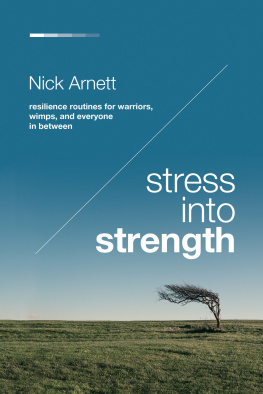
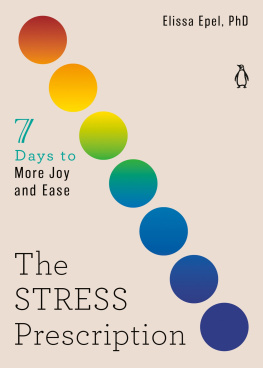

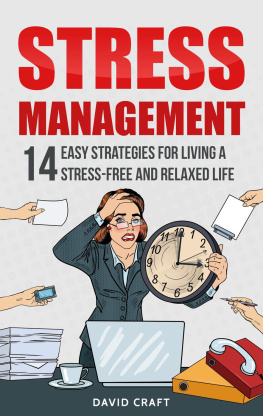
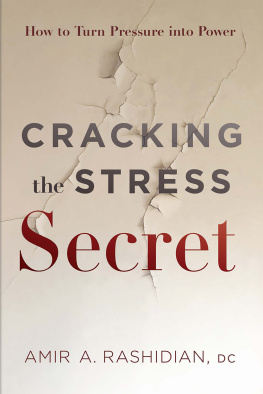
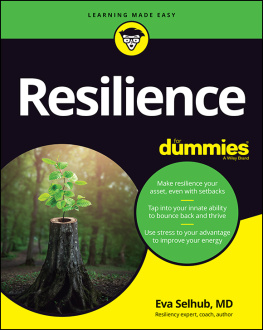
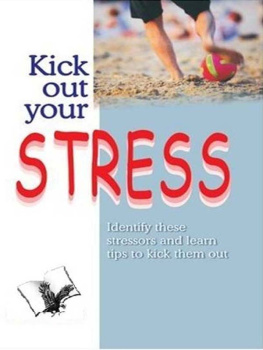
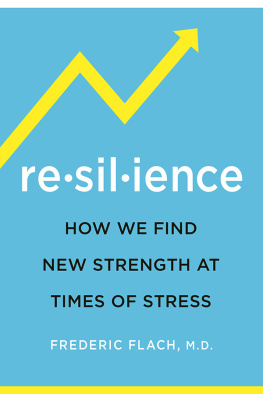
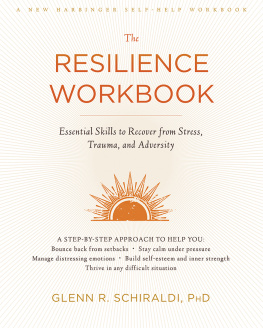
![Elizabeth Anne Scott - 8 keys to stress management : [simple and effective strategies to transform your experience of stress]](/uploads/posts/book/102232/thumbs/elizabeth-anne-scott-8-keys-to-stress-management.jpg)
